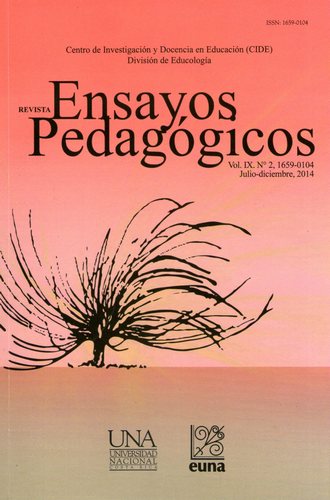A Teaching Proposal to Develop English Students' Speaking Skills from Tenth and Eleventh Grades in Public High Schools
DOI:
https://doi.org/10.15359/rep.9-2.3Keywords:
speaking English, high school students, public education, oral situations, Costa Rican daily lifeAbstract
The main objective of this article is to provide teachers who teach English as a foreign language in public academic schools with a teaching approach to strengthen the oral production of English in tenth and eleventh graders by using the content of the syllabus of the Education Ministry (MEP). One specific objective of this is to encourage the use of participatory and transactional oral strategies to address daily life situations to interact and get a mutual understanding. The other one is to increase vocabulary and technical, formal and informal language to be used in workplaces and everyday situations. Linguistic structures are presented in every level and content included in the tenth and eleventh levels as well as sample situations that will lead English teacher to develop other situations based on the needs of the group and the creativity of the students.
References
Barraja-Rohan, A.M. (2011). Using Conversation Analysis in the Second Language Classroom to Teach Interactional Competence U.S.A : SAGE Publications.
Brookhart .S. y Nitko, A. (2008). Assessment and Grading in Classrooms. NJ: Pearson Education.
Driscol, A. (2011). Constructing Useful and High Quality Rubrics Recuperado de ww.elac.edu/departments/slo/doc/Constructing_Rubrics.pdf
Finocchiaro, M. y Brumfit, C. (1983). The Functional-Notional Approach From Theory to Practice. Oxford: Oxford University Press.
Johnston, W. B. (1991): Global work force 2000: The new world labor market. Harvard Business Review, 69 (2) ,115-27 Recuperado de la Base de Datos ERIC (EJ425238).
Nation, I. S. P. (2001) Learning Vocabulary in Another Language. Cambridge University Press: Cambridge.
Mc Thighe, J. y O’Connor, K. (2009). Seven Practices for Effective Learning. Wadsworth, Canada: Cengage Learning.
MEP. Costa Rica Multilingüe. (2012). Estrategia Siglo XXI: Conocimiento e Innovación para el desarrollo de Costa Rica. Recuperado de http://www.estrategia.cr/es/propiciar-cambio/educacion/
Ministerio de Educación Pública La política educativa hacia el siglo XXI. La política educativa hacia el siglo XXI. (2013). Recuperado de http://www.estadonacion.or.cr/files/biblioteca_virtual/educacion/003/Chavarria_2010_Politica_Educativa_Siglo_XXI.pdf
Quintana, H. (1998). Integración Curricular y Globalización. Recuperado de http://ofdp_rd.tripod.com/encuentro/ponencias/hquintana.html
Reyes, A. (2004-2005). Utilidad del campo léxico para la enseñanza de vocabulario en lenguas extranjeras: El campo léxico para describir habilidad mental en inglés. Relingüística Aplicada, 2, 1-9. Recuperado de http://relinguistica.azc.uam.mx/no002/articulos/Reling-02_UtilidadCampoLexico.pdf
Schmidth, R.( 1990). The role of consciousness in second language learning. Applied Linguistics,11(2),129-158. Recuperado de http://nflrc.hawaii.edu/PDFs/SCHMIDT%20The%20role%20of%20consciousness%20in%20second%20language%20learning.pdf
Zimmerman, C. B. (1997) Do Reading and Interactive Vocabulary Instruction Make a Difference? An Empirical Study ? Tesol Quarterly, 31, (1), 121-140. Recuperado de http://www.jstor.org/discover/10.2307/3587978?uid=2&uid=4&sid=2110412196
Downloads
Published
How to Cite
Issue
Section
License
Ensayos Pedagógicos is subscribed to the Attribution-NonCommertial-NoDerivatives 4.0 International Creative Commons Licence, which allows both authors and readers to freely download, store, copy, and distribute the final approved publisehd version of the manuscript (post-print) as long as this is done without commercial purposes, no derivative works are generated, and the source and author are mentioned. As well, Ensayos Pedagógicos declares that authors will remain the rightful owners of the copyrights of their work in perpetuity.







